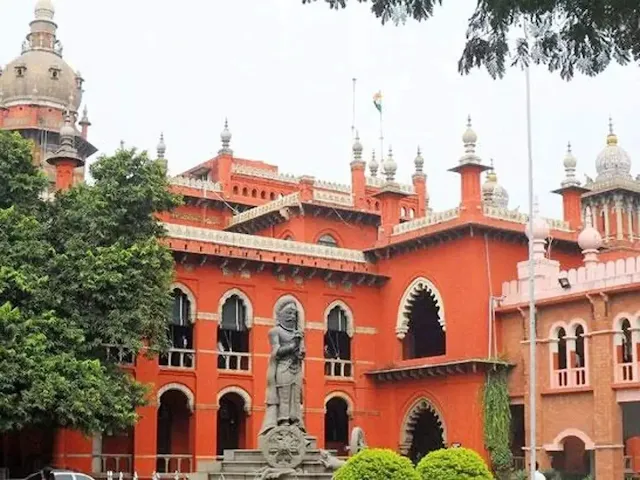In a significant judgment, the Madras High Court dismissed a petition seeking the appointment of non-hereditary trustees from a specific sub-caste for the administration of the Arulmighu Varatharaja Perumal and Senraya Perumal Temple. The court emphasized that such a request contradicts constitutional principles and public policy, underscoring the imperative to move beyond caste-based distinctions in societal roles.
Background of the Case
The petitioner, A. Rajendran, filed a writ petition requesting the court to frame a scheme for the administration of the aforementioned temple, specifically advocating for the inclusion of non-hereditary trustees from a particular sub-caste. The petitioner argued that members of this sub-caste had historically been involved in the temple's management and that their continued participation would preserve traditional practices.
Court's Observations
Justice Bharatha Chakravarthy, presiding over the case, expressed profound concern regarding the perpetuation of caste-based distinctions. The court lamented that even after seventy-five years of India's constitutional democracy, segments of society remain entrenched in caste identities. Justice Chakravarthy remarked, "Despite seventy-five years of our Constitution, sections of the society are yet to shed this unwanted baggage." He further emphasized that any action or prayer that aims to perpetuate caste distinctions is inherently unconstitutional and opposes public policy.
Constitutional Mandate Against Caste-Based Discrimination
The judgment highlighted the constitutional vision of a casteless society, where equality prevails, and discrimination based on birth is eradicated. The court noted that caste is a social construct that assigns roles and privileges based on birth rather than individual merit or actions, which is antithetical to the constitutional ethos of equality. Justice Chakravarthy stated, "Caste is a social evil. Casteless society is our constitutional goal. Anything towards perpetuation of caste can never be considered by any Court of law."
Reference to Supreme Court Precedents
The court referred to the Supreme Court's observations in the case of Ashoka Kumar Thakur v. Union of India, reiterating that while the Constitution acknowledges the existence of caste, its ultimate aim is to ensure that no individual faces discrimination due to their caste. The Supreme Court had emphasized that the goal is to achieve a casteless and classless society, aligning with the constitutional dream of equality and non-discrimination.
Implications of the Judgment
This ruling by the Madras High Court reinforces the judiciary's commitment to upholding constitutional values that promote equality and prohibit discrimination based on caste. By rejecting the plea to appoint trustees from a specific sub-caste, the court has sent a clear message that administrative roles, especially in public religious institutions, should not be influenced by caste considerations. The judgment underscores the need for society to move beyond historical caste identities and embrace a more inclusive and egalitarian approach in all spheres, including religious and cultural institutions.
Conclusion
The Madras High Court's decision marks a pivotal step towards dismantling caste-based structures within temple administrations. It aligns with the broader constitutional mandate to eradicate caste-based discrimination and promote a society where roles and responsibilities are assigned based on merit and inclusivity, rather than birth. This judgment serves as a reminder of the ongoing need to address and eliminate the remnants of caste-based distinctions in Indian society.










0 Comments
Thank you for your response. It will help us to improve in the future.